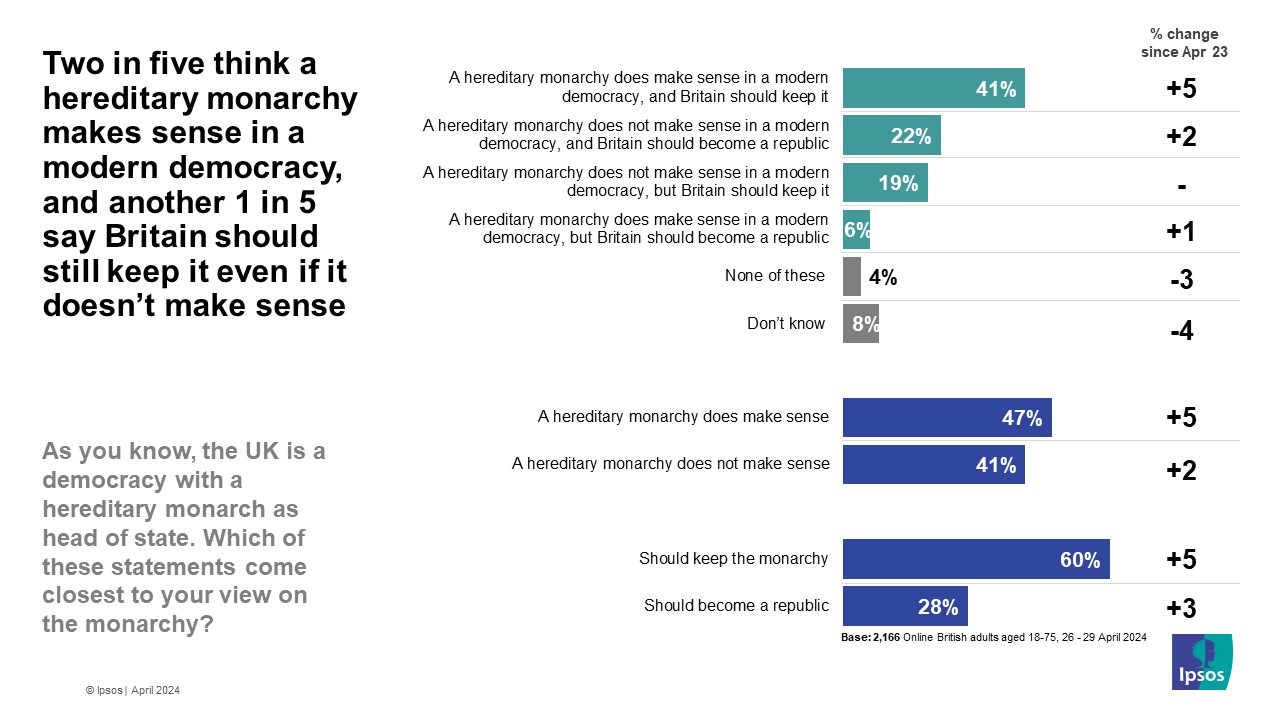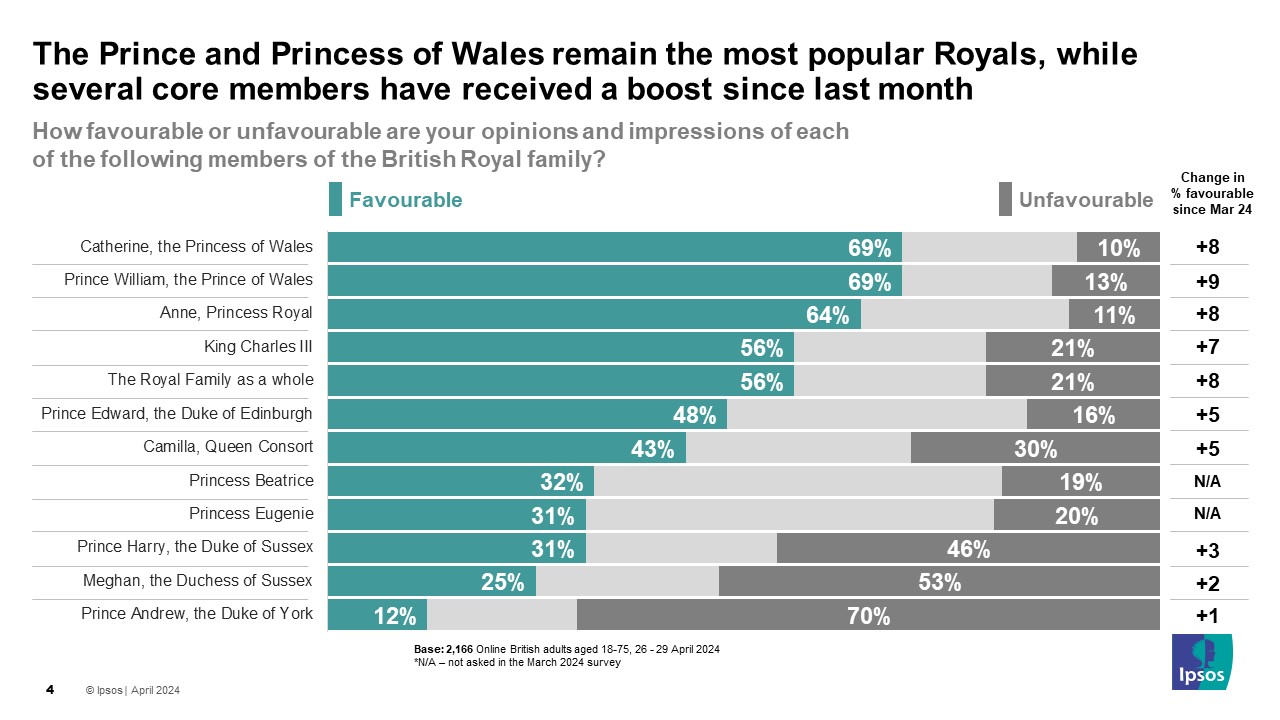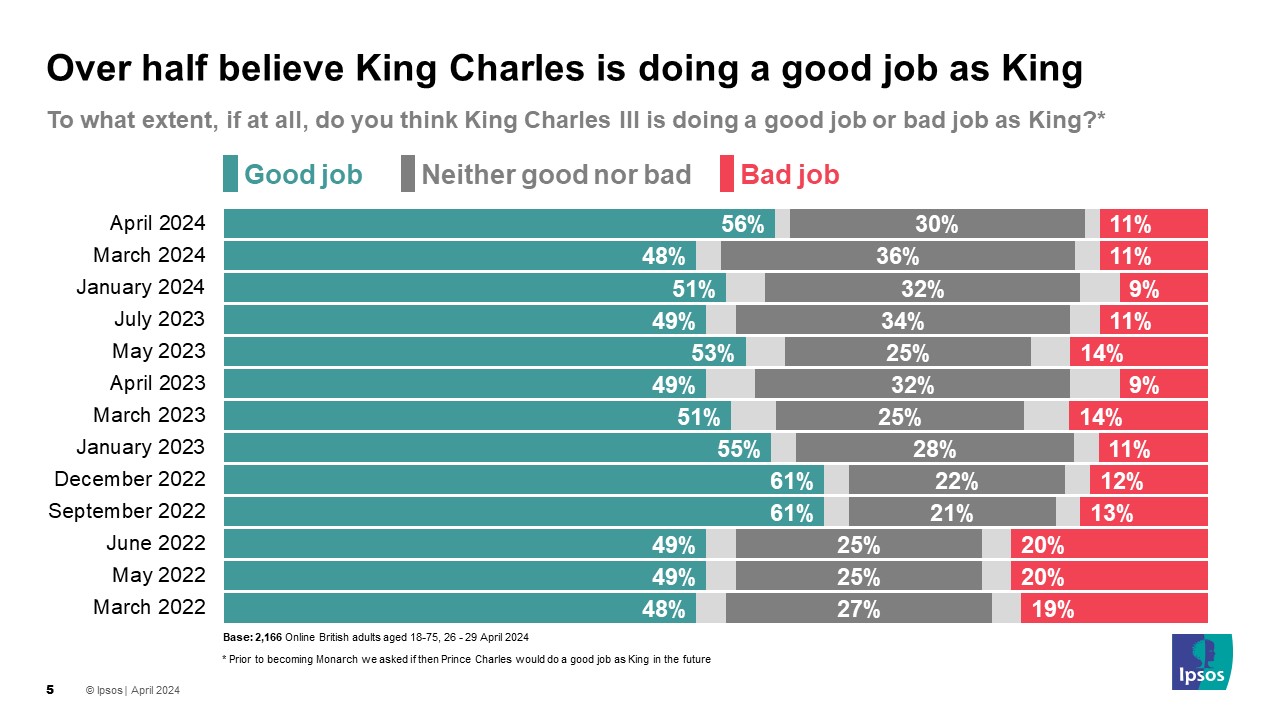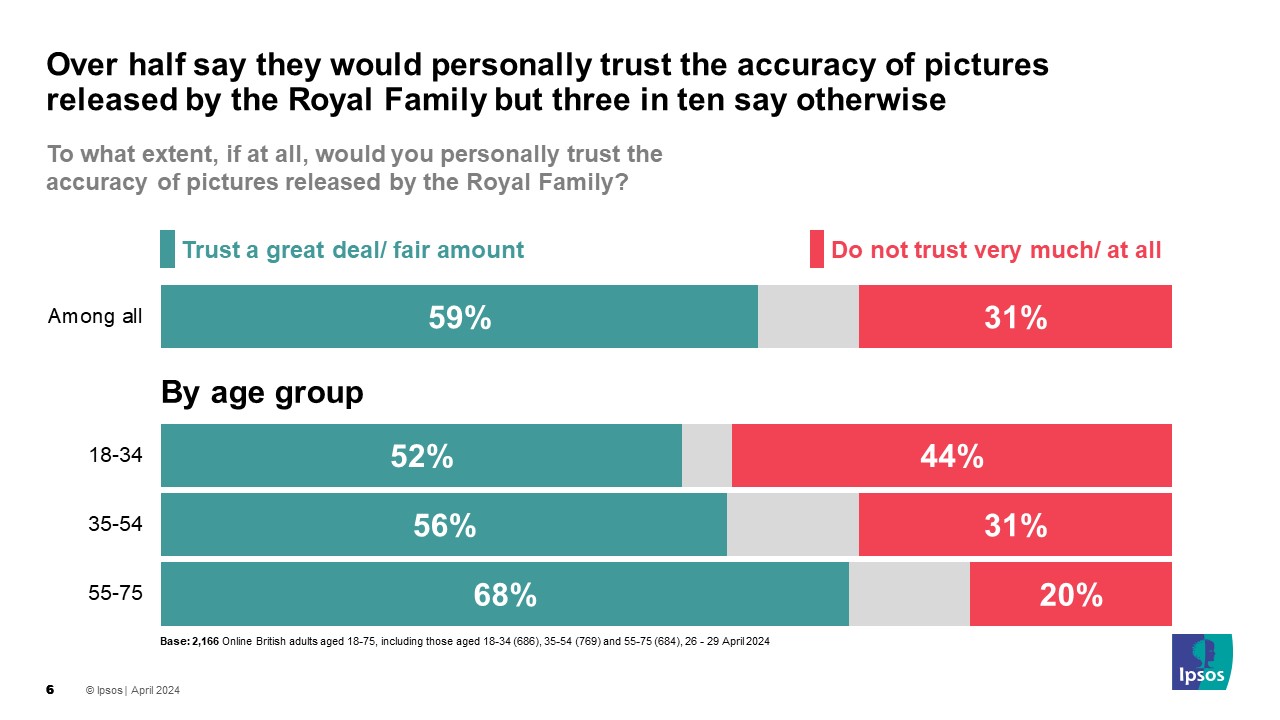Public perceptions of the Royal Family improve as Prince and Princess of Wales remain the most popular and over half believe King Charles is doing a good job
- Catherine, the Princess of Wales and Prince William remain the most popular Royals with 7 in 10 Britons favourable
- 56% those surveyed believe King Charles is doing a good job as King as he returns to public duties, up 8 ppts since March
The Royal Family’s image remains strong and shows signs of improvement since March, with the Princess and Prince of Wales remaining its most popular members. As King Charles resumes public-facing duties, over half of Britons believe that he is doing a good job as King. Public attitudes remain broadly supportive over the Royal Family’s approach to releasing information about the health of King Charles and the Princess of Wales, and over the accuracy of pictures they release, while only a small minority of those who have watched the television series “The Crown” say it has damaged their opinions.
Support for the monarchy
- Almost half (46%) of Britons believe that it would be worse for Britain in the future if the monarchy was abolished. This is up from 38% in polling taken from 26-28 March. 24% think it would be better if it was abolished, and 25% that it would make no difference.
- Two in five (41%) think a hereditary monarchy makes sense in a modern democracy, and Britain should keep it, but another 1 in 5 say Britain should keep it even if it doesn’t make sense. 21% believe that it does not make sense, and Britain should become a republic (and another 6% that Britain should remove the monarchy even though it still makes sense).

Popularity of members of the Royal Family
- The Prince and Princess of Wales are the most popular members of the Royal Family, each with 69% reporting a favourable view of them (+9 and +8, respectively, from March 2024).
- King Charles III ranks fourth, with 56% holding a favourable view (+7 since March) and 21% unfavourable. Princess Anne is in third place at 64% favourable (+8).
- Favourability figures from other members of the Royal Family can be found below:

- Over half (56%) of Britons believe that King Charles III is doing a good job as King. This is up from 48% in March, and the highest score since January 2023.

- Queen Camilla’s favourability ratings also improve since March, up 5 to 43%. Overall, Britons are split as to their preferred official title for her, with 35% choosing ‘Camilla, Queen Consort’, and 25% ‘Queen Camilla’.
- Four in ten Britons would support Princess Eugenie and Princess Beatrice becoming a full-time working Royal on a temporary basis while King Charles and the Princess of Wales are not undertaking public-facing duties.
- Opinion is split on Prince Harry resuming public-facing duties, with 44% opposing his return while King Charles and the Princess of Wales are unavailable. The majority (66%) are against the idea of Prince Andrew taking on this role.
Trust in information/photographs released
- Two-thirds of Britons believe that the Royal Family have provided about the right amount of information about the health of King Charles (69%) and the Princess of Wales (65%).
- Over half (59%) say they would trust the accuracy of photographs provided by the Royal Family, rising to 68% of those aged 55-75.

The TV Series "The Crown"
- The majority of Britons (54%) say they have not watched television series “The Crown” but have heard of it.
- Among the 37% who had watched the series, half (51%) believe that it has not changed their opinion of the Royal Family. 32% that it has made them feel more favourably about the Royal Family, while 16% say it has made them feel less favourably.
Gideon Skinner, Head of Political Research at Ipsos said:
The Royal Family's public image has proved resilient over the past few months. Britons generally approve of how they shared information about the health of the King and Princess of Wales, and people also still mostly trust the accuracy of the pictures they release, despite recent controversy. This demonstrates the value of a strong reputation built over time. As the King resumes public-facing duties, he is greeted by an uplift in his popularity and that of other key royals. However, it is unclear whether this is a temporary boost due to a rise in public sympathy or a more lasting change, especially among younger generations who have traditionally expressed less enthusiasm for the monarchy and where the Royals need to focus their engagement efforts.
Technical note
Ipsos interviewed a representative sample of 2,166 adults aged 18-75 across Great Britain. Polling was conducted online on between 26-29 April 2024. Data are weighted to match the profile of the population. All polls are subject to a wide range of potential sources of error.






